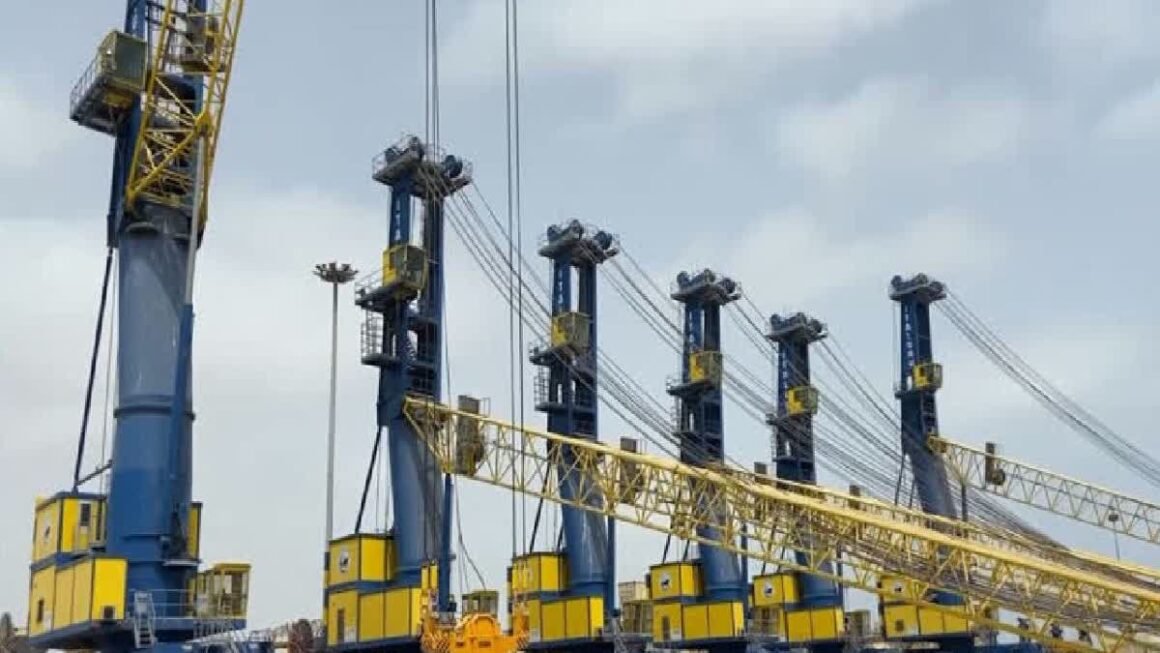
Punchline: The end of the Chabahar sanctions waiver puts India at a crossroads, where strategic foresight, economic adaptability, and diplomatic agility will determine its role in shaping regional connectivity and global power dynamics.
The United States has formally announced the revocation of the sanctions waiver granted for operations at Iran’s Chabahar Port, a strategic project where India has invested heavily. The decision, announced in mid-September 2025, will take effect from September 29, 2025, marking a significant policy shift with far-reaching implications for India’s regional trade, connectivity, and diplomatic strategy. This development has sparked wide debate among policymakers, analysts, and industry stakeholders, who see it as a test of India’s ability to safeguard its long-term strategic interests in a turbulent geopolitical environment.
Background of the Waiver
The sanctions waiver was introduced in 2018 under the Iran Freedom and Counter-Proliferation Act (IFCA) to exempt India’s involvement in the Chabahar Port from U.S. sanctions. The exemption acknowledged the port’s critical role in providing India with an alternative route to Afghanistan and Central Asia, bypassing Pakistan. It also supported India’s humanitarian initiatives and regional development programs by enabling trade and aid delivery through this vital maritime hub.
Over the years, Chabahar has become an essential component of India’s regional outreach. Investments in infrastructure, logistics, and allied facilities were seen as a demonstration of New Delhi’s commitment to strengthen its footprint in West Asia and beyond. The waiver provided India with a rare space to maintain operational continuity in Iran while adhering to U.S. restrictions.
The U.S. Decision
According to the U.S. State Department, the revocation stems from broader efforts to tighten restrictions on Iran and reduce its access to international trade and financing. By withdrawing the waiver, the U.S. seeks to send a strong message on its uncompromising stance against Iran’s policies, while also recalibrating its strategic considerations in West Asia. This comes at a time when Washington is reasserting pressure on Tehran over its nuclear program, regional activities, and closer ties with China and Russia.
The move has come despite repeated appeals by India to safeguard its long-term investments and connectivity ambitions in the region. Observers suggest that the U.S. decision also reflects shifting priorities in its foreign policy, where countering Iran is viewed as critical to securing allies in the Middle East.
Implications for India
The decision poses multiple challenges for New Delhi:
- Strategic Setback: Chabahar Port has been central to India’s plans for regional connectivity, particularly in linking to Afghanistan and the International North-South Transport Corridor (INSTC). The loss of waiver protection could jeopardize India’s access and influence in Central Asia, potentially leaving a vacuum for other powers like China.
- Risk of Sanctions Exposure: Indian companies involved in the port’s development, shipping, and associated trade may now face potential U.S. sanctions, complicating financial transactions, international partnerships, and insurance coverage for shipments.
- Geopolitical Balancing Act: India will need to carefully navigate between its strategic partnership with the U.S. and its longstanding relationship with Iran. This balancing act becomes even more delicate given growing global polarization in West Asia, especially with Iran deepening its ties with China.
- Impact on Aid and Trade: India’s use of Chabahar to deliver humanitarian aid to Afghanistan and strengthen trade with Central Asian nations could slow down, affecting both diplomatic goodwill and developmental commitments.
- Loss of Leverage: With Chabahar facing restrictions, India risks losing a critical bargaining chip in regional politics. Its influence in Afghanistan, which heavily relied on Chabahar for aid supply, could weaken over time.
India’s Response
Reports indicate that New Delhi is actively evaluating diplomatic and strategic options. These include:
- Engaging Washington to negotiate partial exemptions or explore alternative frameworks for cooperation.
- Deepening ties with Tehran to secure continued access and mitigate risks through bilateral agreements and local partnerships.
- Exploring multilateral support by involving regional stakeholders such as Russia, Central Asian republics, and even the European Union in keeping Chabahar functional as a transit hub.
- Diversifying trade corridors by expediting projects like the INSTC and investing in domestic port modernization to offset potential losses.
Global Context
The revocation of the waiver also highlights the wider geopolitical competition in the region. While the U.S. aims to isolate Iran, China has stepped up its engagement with Tehran through infrastructure projects under the Belt and Road Initiative (BRI). This dynamic puts additional pressure on India, which now risks losing ground to Chinese investments and influence in Iran. Russia, too, has expressed interest in using Chabahar as part of its connectivity plans, further complicating the landscape.
In this broader context, the U.S. decision could inadvertently strengthen the very actors it seeks to counter, while forcing India into tougher choices. If India scales back its role in Chabahar, China may seize the opportunity to expand its presence, altering the balance of power in the region.
Economic Impact
From an economic standpoint, the decision may disrupt India’s efforts to establish a reliable trade corridor to Central Asia. Chabahar was envisioned as a cost-effective alternative to land routes through Pakistan, enabling smoother trade flows. Its weakening could increase trade costs, affect supply chains, and reduce competitiveness for Indian exports.
Indian exporters, especially those in the agriculture and pharmaceuticals sectors, may now face difficulties in accessing Afghan and Central Asian markets. Additionally, the risk of sanctions could deter private players from participating in Chabahar-related projects, leaving only state-backed entities to shoulder the burden.
The U.S. decision to revoke the Chabahar sanctions waiver, announced in mid-September 2025 and effective from September 29, 2025, is not just a diplomatic blow but a test of India’s strategic resilience. For New Delhi, the challenge lies in protecting its regional interests without compromising its global partnerships. Whether through renewed diplomacy with Washington, stronger collaboration with Tehran, or diversification of trade routes, India must act decisively to safeguard its connectivity ambitions.
FOR MORE BLOGS – beyondthepunchlines.com

 Add to favorites
Add to favorites








